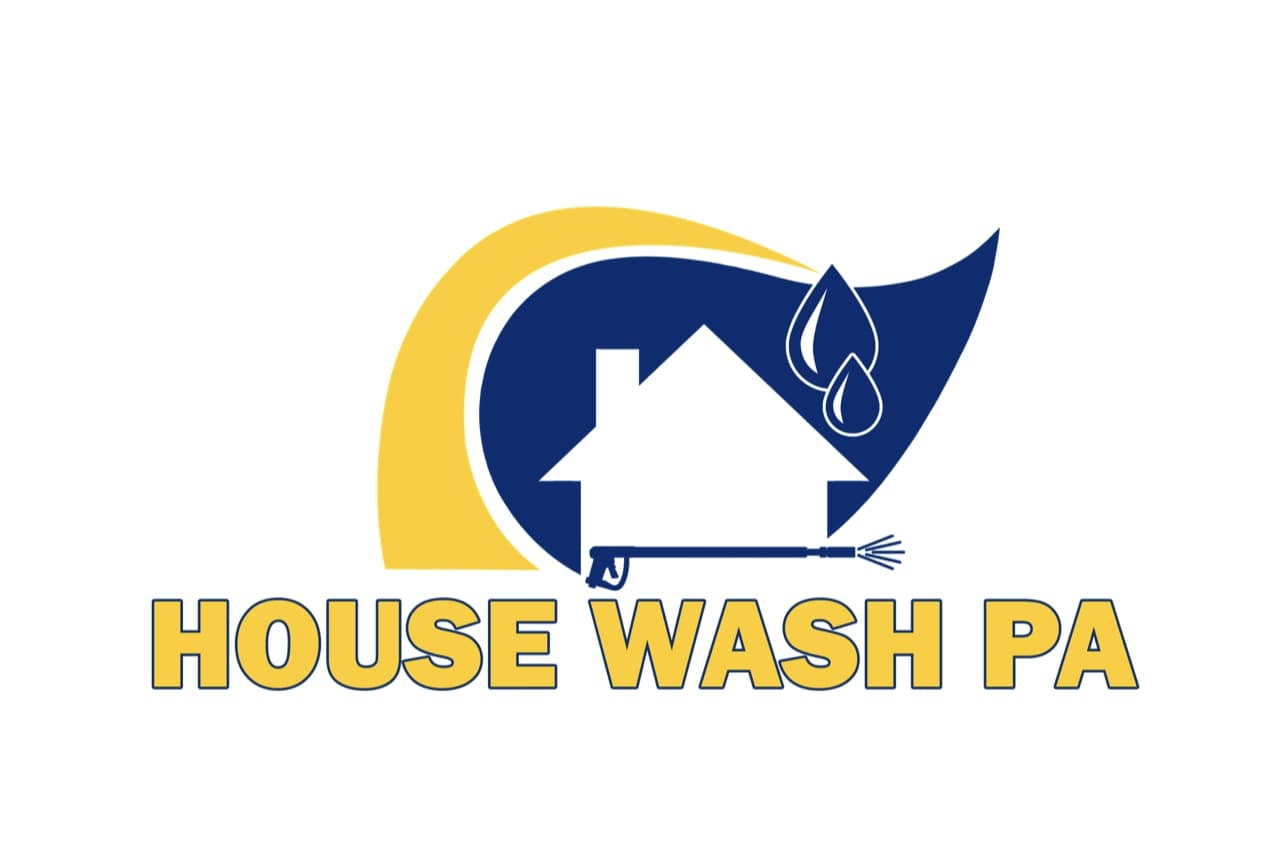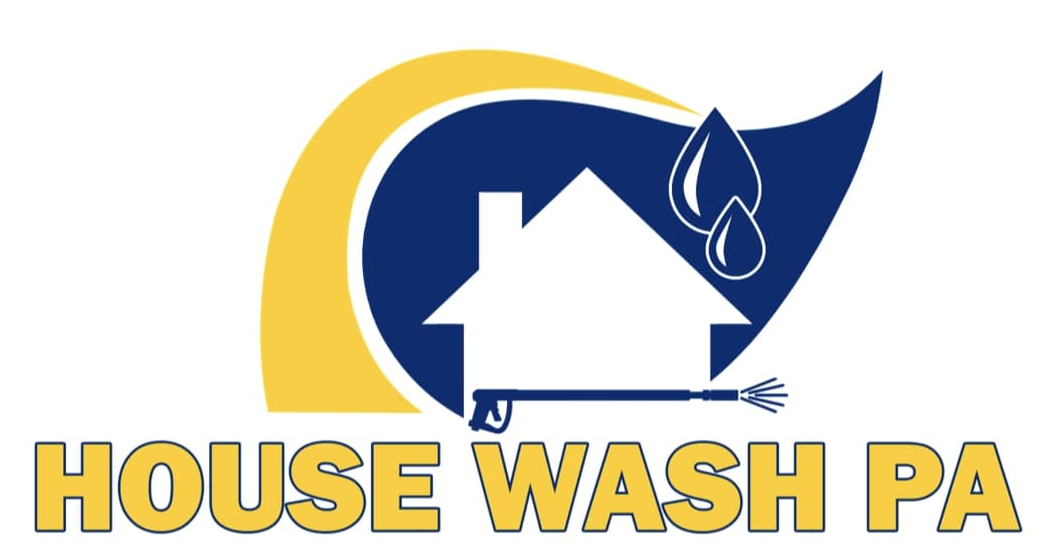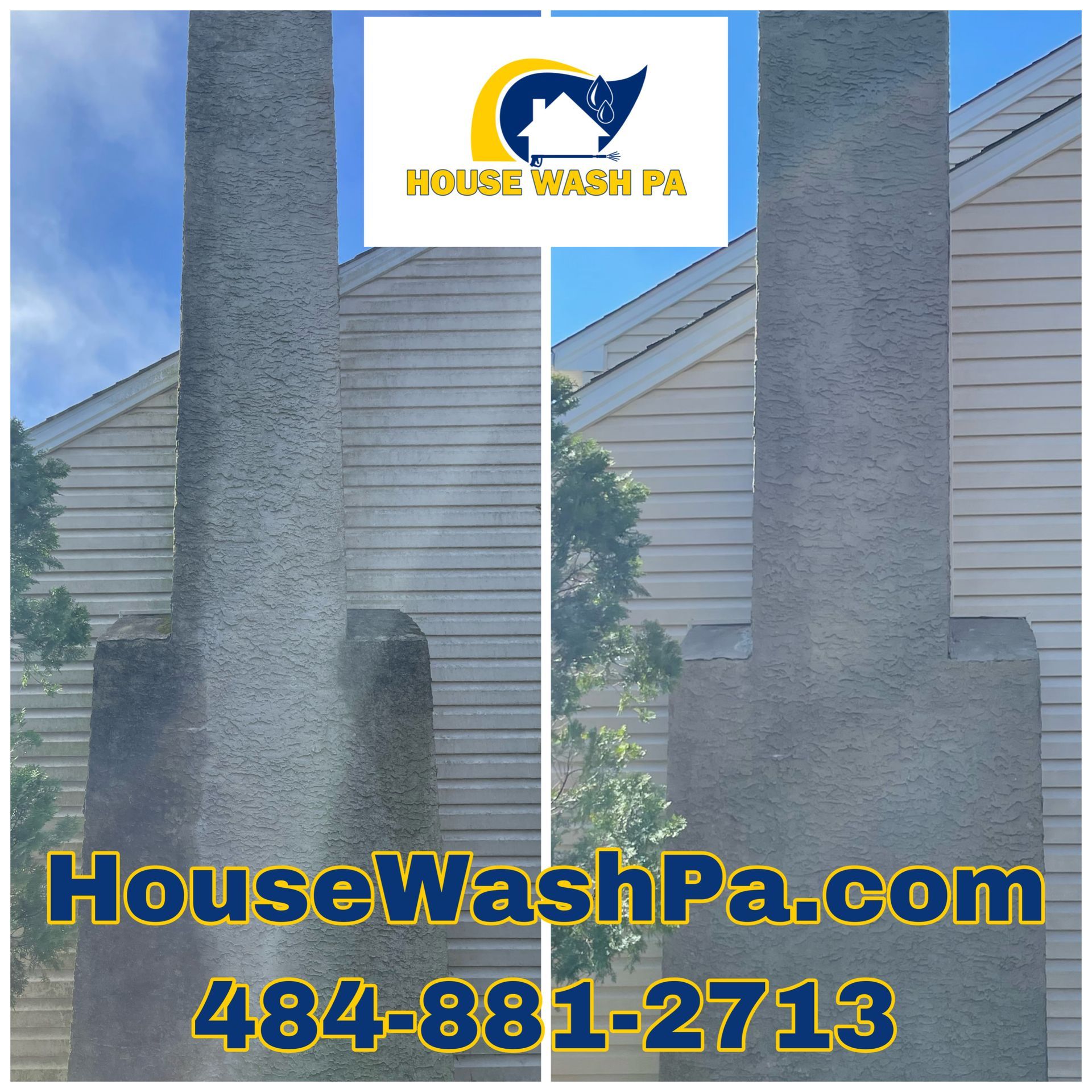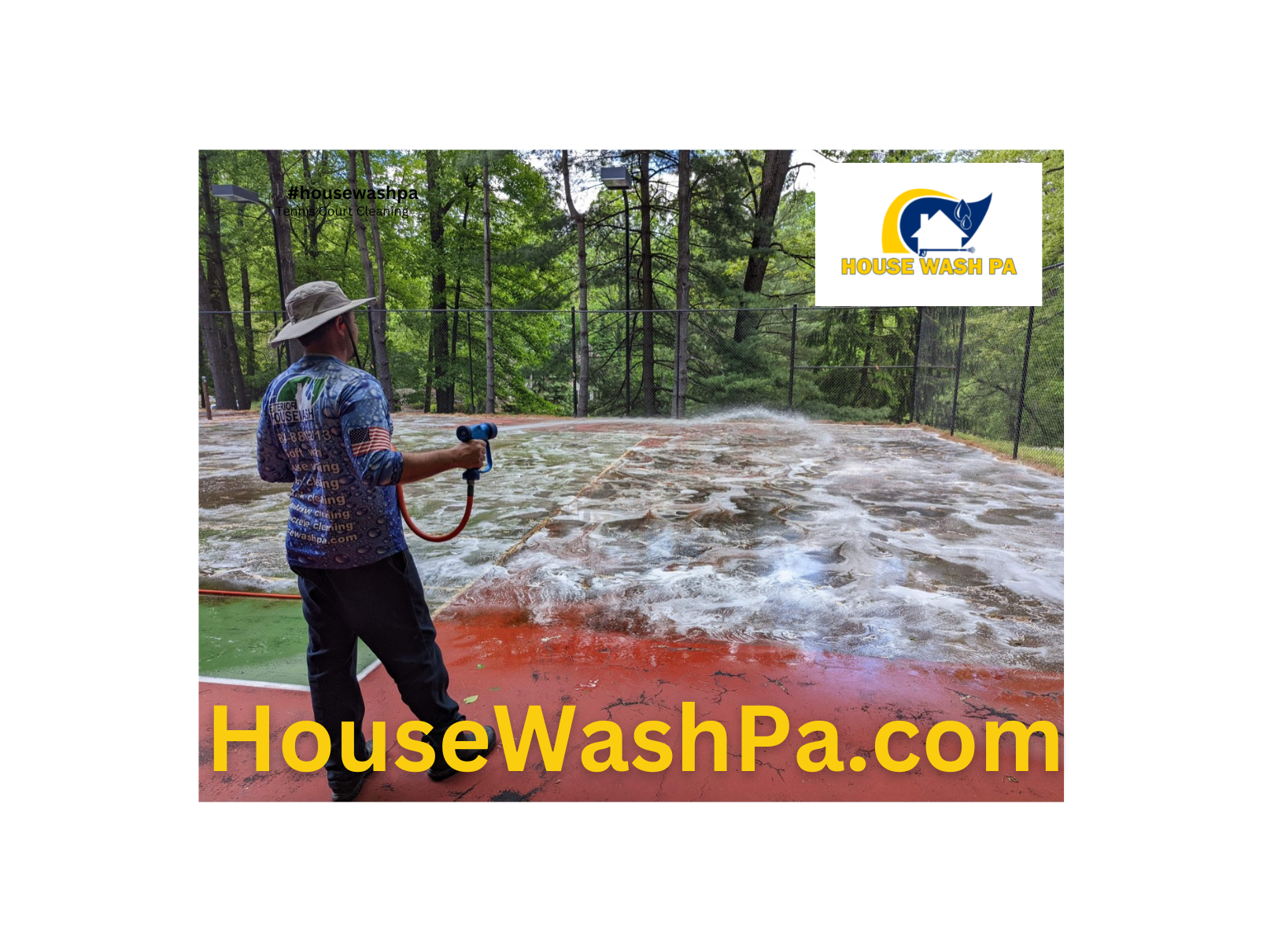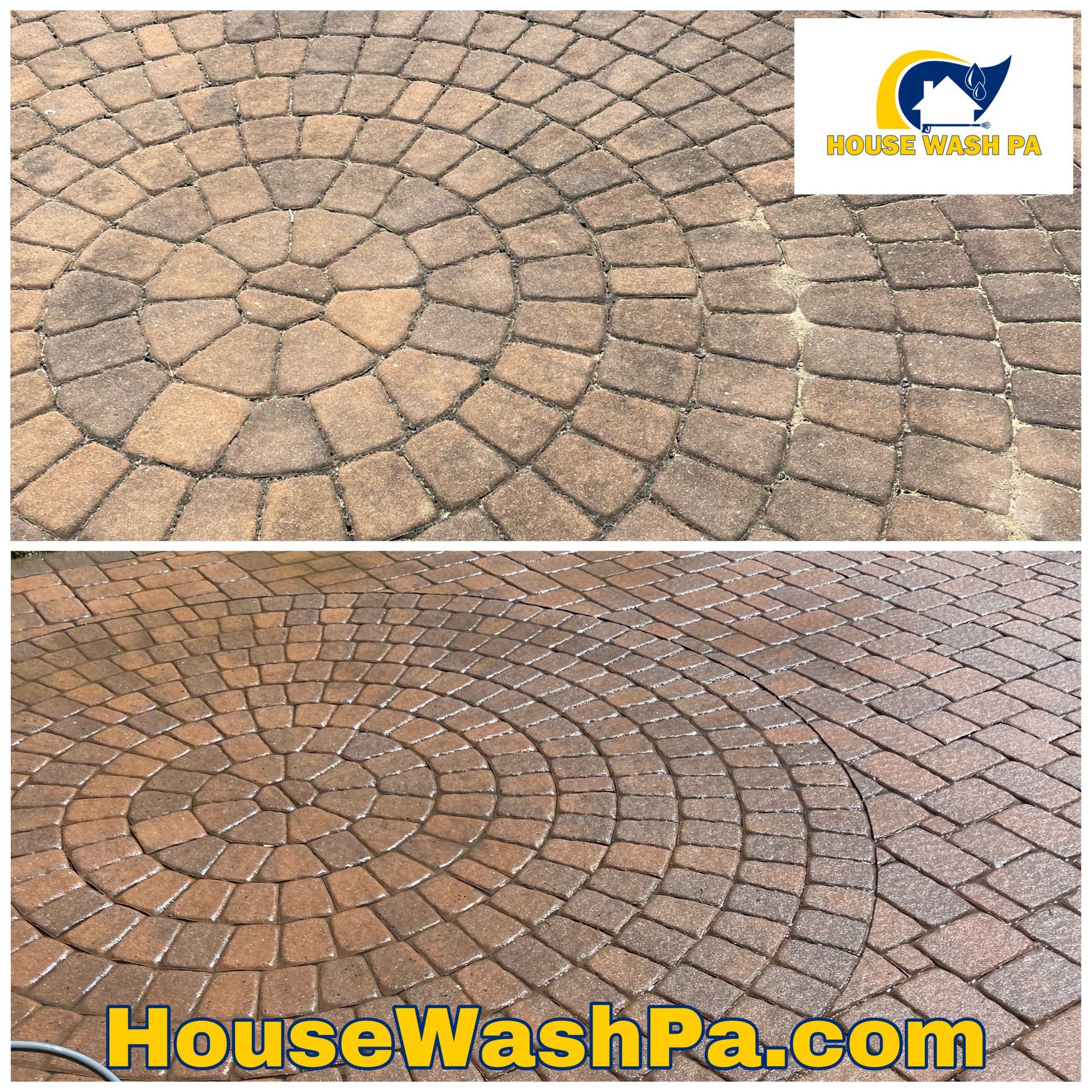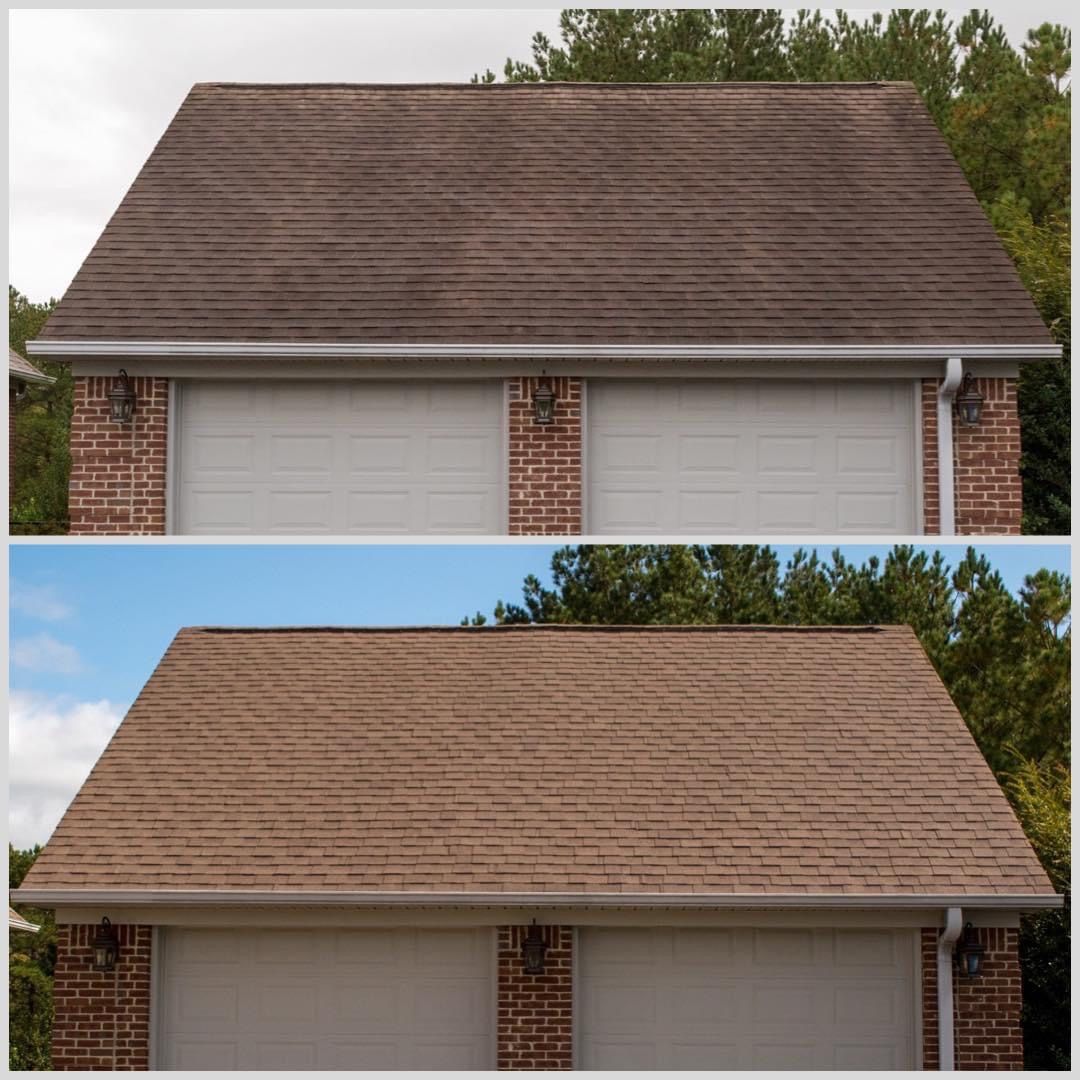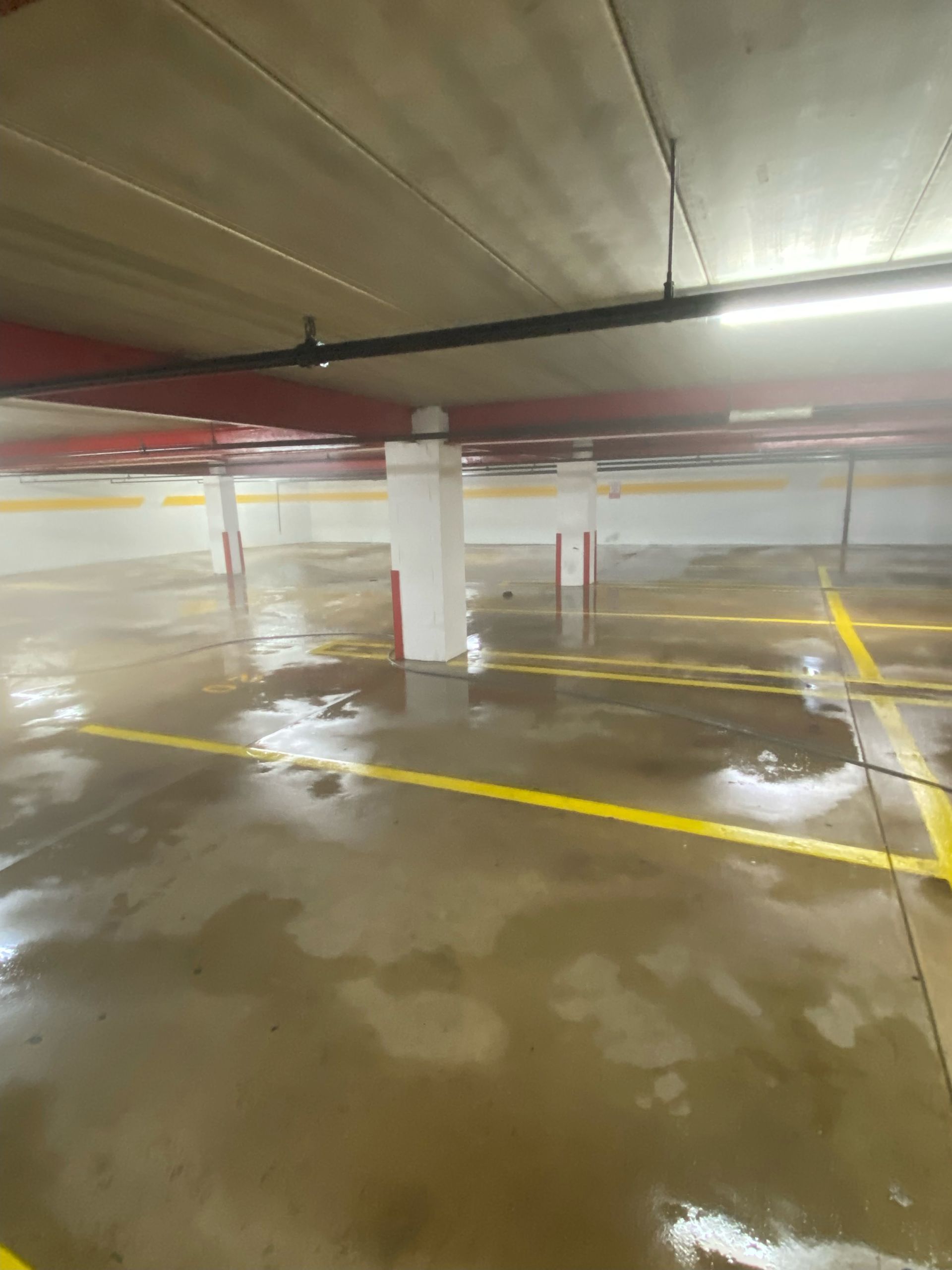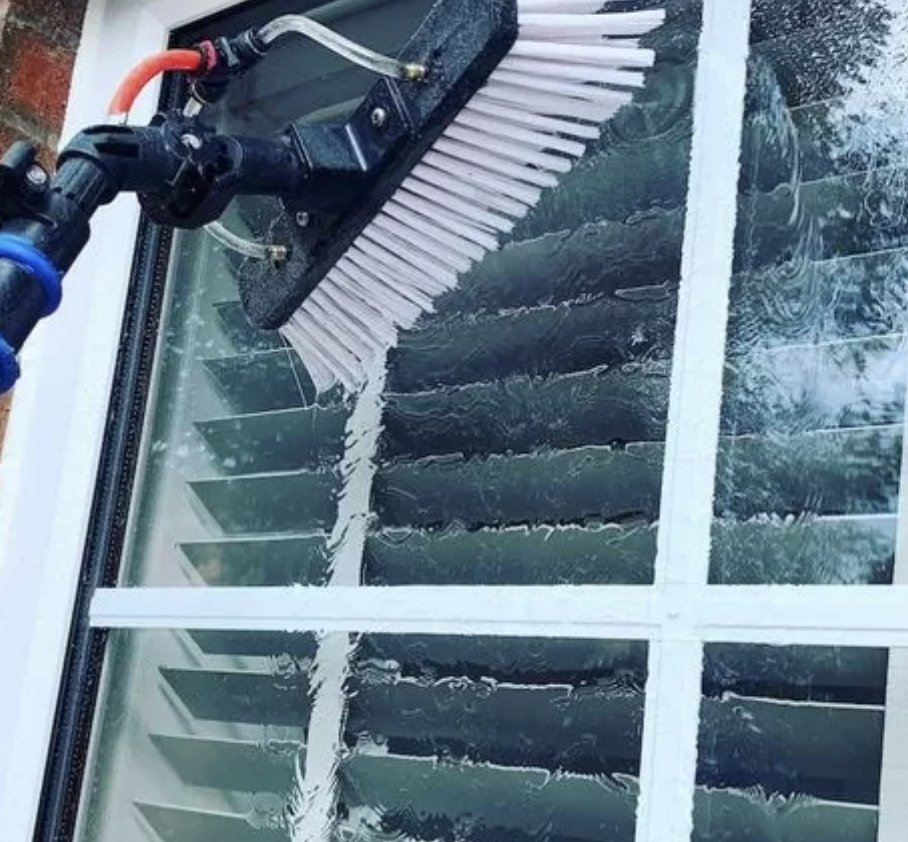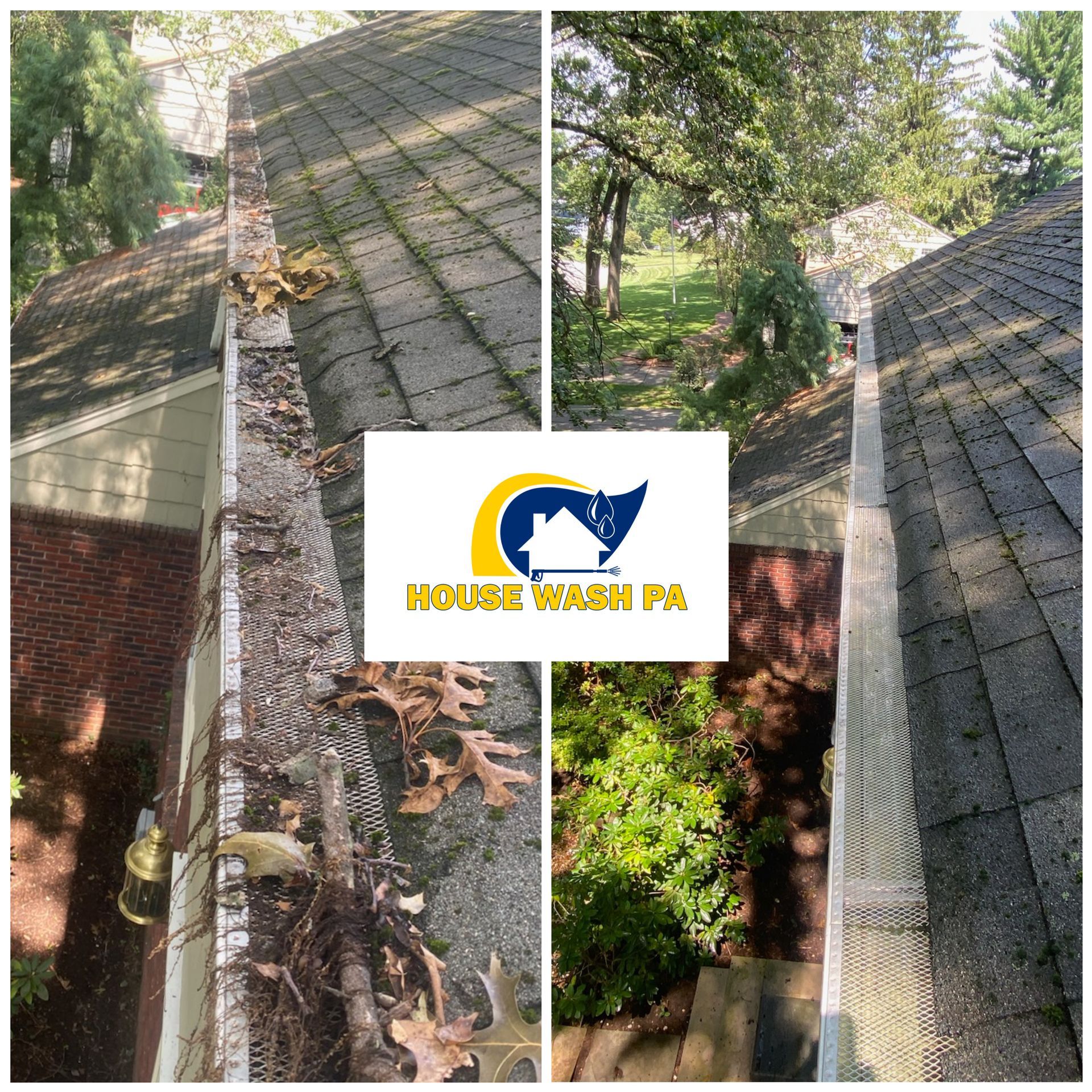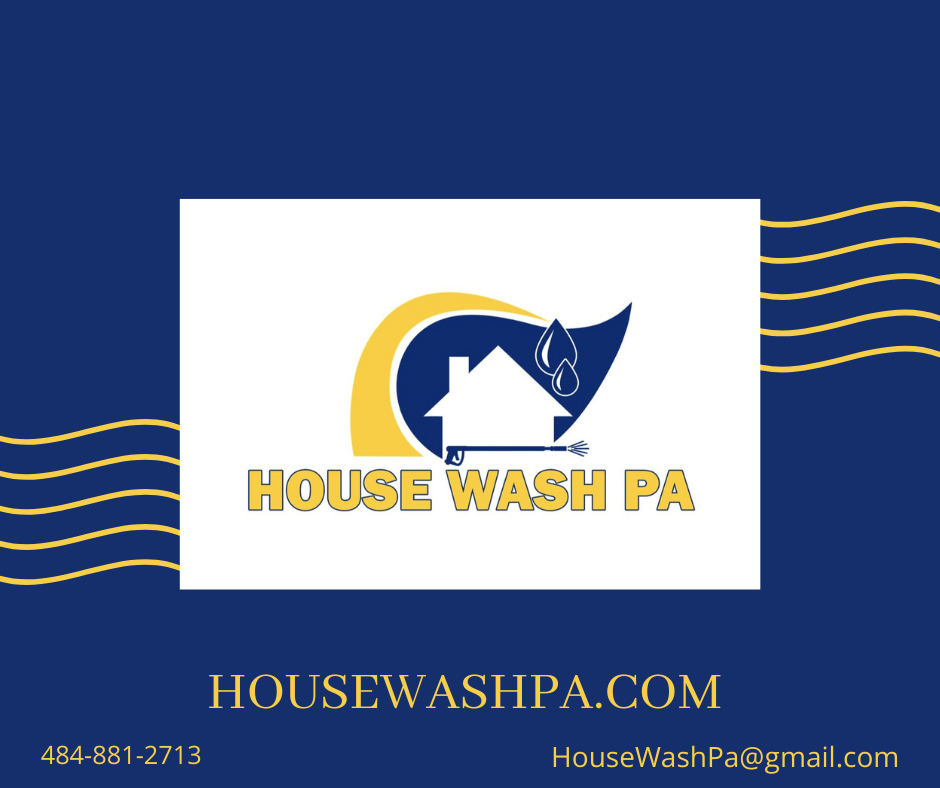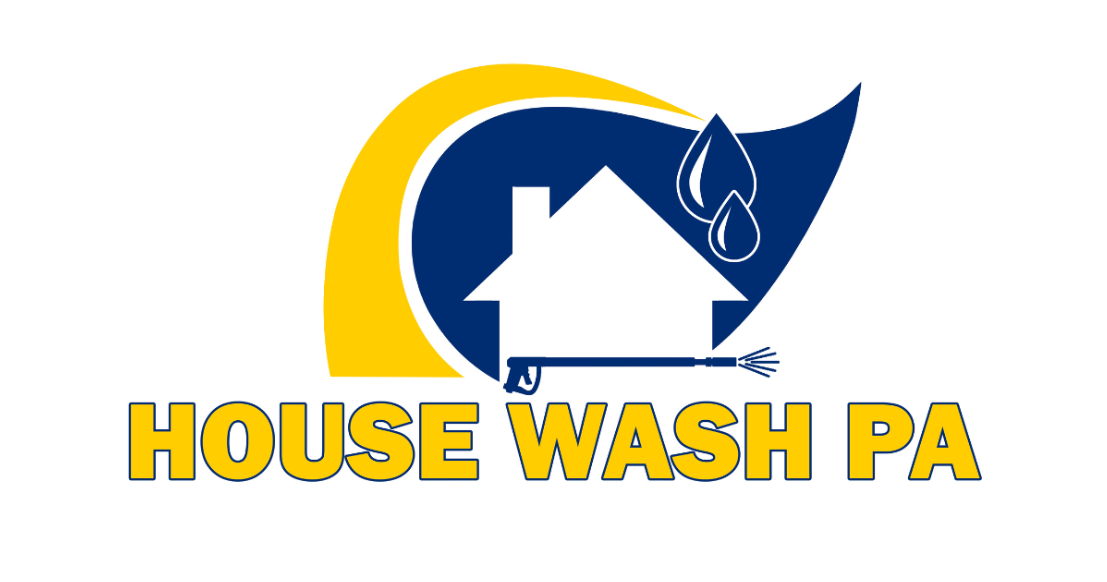Soft Washing is the preferred method to exterior cleaning
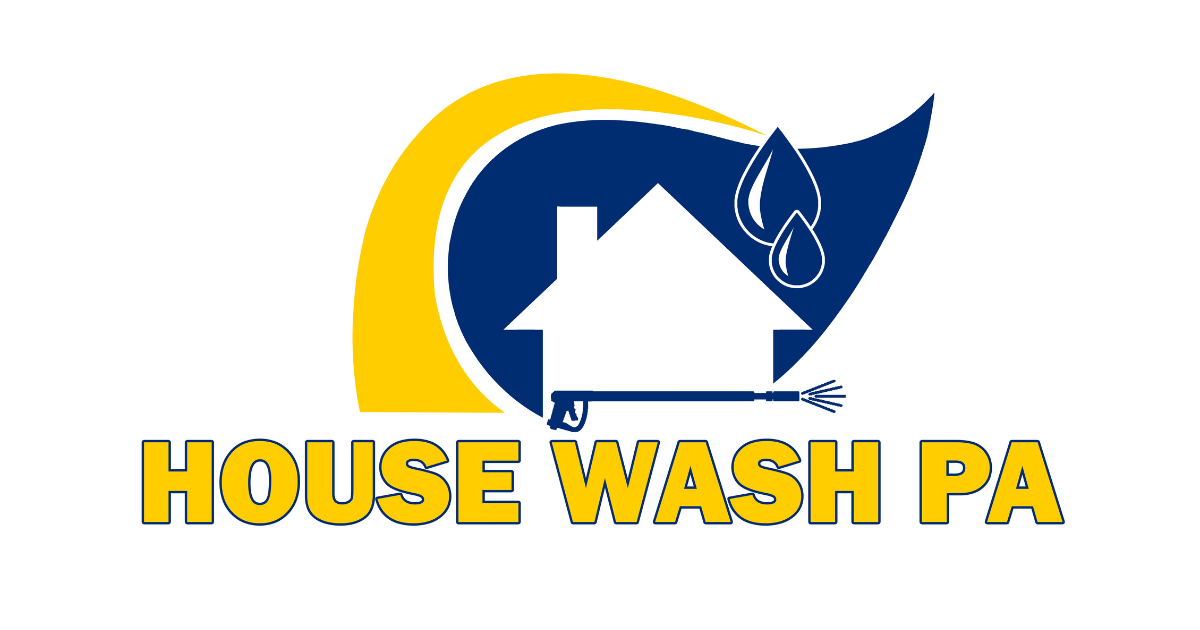
Understanding Soft Washing
Before we explore the benefits of soft washing, let's first understand what it entails. Soft washing is a gentle and safe cleaning technique that utilizes low-pressure water and specialized cleaning solutions to remove dirt, grime, mold, mildew, and other contaminants from the exterior surfaces of a house. Unlike pressure washing, which uses high-pressure water to forcefully remove debris, soft washing combines a chlorine-based cleaner, surfactants, and water to achieve a deep and thorough clean. This unique approach ensures that fragile areas such as windows, roof shingles, screens, and delicate sidings are not damaged during cleaning.
The Advantages of Soft Washing
Soft washing offers superior cleaning efficiency compared to traditional pressure washing methods. Utilizing a specialized cleaning solution with a surfactant reduces the surface tension, allowing the solution to spread evenly and adhere to the surfaces being cleaned, and the cleaning agents can penetrate deeply into porous materials, effectively eliminating mold, mildew, moss, algae, and other biological debris that tend to accumulate on the exterior of a house. Soft washing removes visible stains and discoloration and provides long-lasting protection against future biological growth.
Gentle on Delicate Surfaces
One of the primary reasons why soft washing has gained significant traction is its ability to clean delicate surfaces without causing any damage. Unlike pressure washing, which can lead to cracked windows, loose sidings, or stripped paint, soft washing ensures the integrity and longevity of the house's exterior materials. Soft washing is suitable for a wide range of surfaces, including roof shingles, stucco, vinyl and wood sidings, fiber cement board, concrete and more. This versatility makes soft washing an ideal choice for homeowners looking to clean their houses effectively without the risk of damaging delicate surfaces.
Preventing Biological Growth
Mold, mildew, algae, and other biological growth not only detract from the appearance of a house but also pose health risks to its occupants. Soft washing provides an effective solution to combat these issues by incorporating a fungicidal treatment into the cleaning process. The chlorine-based cleaner used in soft washing kills and inhibits the growth of these harmful organisms, ensuring a cleaner and healthier living environment for homeowners. By eliminating the root causes of biological growth, soft washing prevents recurring infestations and significantly reduces the need for frequent cleaning.
Prevention of damage
Unlike pressure washing, which can potentially cause harm if not used properly, soft washing minimizes the risk of damage to your home's exterior. The low-pressure water stream ensures that fragile surfaces remain intact, reducing the chances of cracks, chipping, or stripping away protective coatings. Soft washing is a safe and reliable option to clean your house without compromising its structural integrity.
Cost-Effective Solution
Soft washing offers an affordable and cost-effective solution for homeowners who wish to maintain a clean and aesthetically pleasing house. While the cost of professional soft washing can vary depending on the size of the house and the extent of the cleaning required, it is generally more economical than pressure washing. Hiring professionals for soft washing typically ranges from $350 to $900, while a DIY soft washing project using purchased materials costs around $1500. When factoring in the cost of the material and equipment to do it yourself, soft washing is very cost effective.Considering the long-lasting results and the prevention of potential damage to delicate surfaces, soft washing proves to be a wise investment in the overall maintenance of a house. By entrusting the task to experts, you save time and achieve optimal results without investing in expensive equipment or potential repairs caused by improper cleaning techniques.
Safety and Environmentally Friendly
Soft washing takes safety and environmental considerations into account. The use of biodegradable cleaning solutions and chlorine bleach ensures that the cleaning process is not only effective but also eco-friendly. The specialized cleaning agents used in soft washing are designed to dissolve and eliminate organic matter, such as algae, mold, and mildew, without causing harm to the surrounding environment.
How to Soft Wash a House
Soft washing of a house can be done by following a few simple steps. Here is a general outline of the soft washing process:
- Preparation: Move delicate plants and saturate areas with water that should not come into contact with the cleaning solution.
- Accessing a Water Source: Connect the pressure washer to a water source and ensure proper water flow.
- Applying the Cleaning Solution: Mix the specialized cleaning solution as per the manufacturer's instructions and apply it to the surfaces using low-pressure equipment or a soft wash system. The most common pump used is a diaphragm pump.
- Allowing the Solution to Dwell: Let the cleaning solution sit on the surfaces for the recommended amount of time to allow it to penetrate deeply and dissolve the contaminants. Be careful to not allow the solution to dry on the surface.
- Agitating if Needed: In cases of heavily soiled areas, agitate the surfaces gently using a soft brush or sponge to dislodge stubborn stains.
- Rinsing: Rinse the surfaces thoroughly with low-pressure water, ensuring the removal of all cleaning residues.
- Repeating for Heavily Soiled Areas: If necessary, repeat the soft washing process for heavily soiled areas until the desired level of cleanliness is achieved.
- Applying Post-Treatment: Consider applying a post-treatment solution to provide additional protection against future biological growth. The post-treatment should include neutralizing agents and wax to protect the vegetation and the housing material.
Cleaning Up: Clean up the surrounding area, remove any protective coverings, and ensure proper disposal of cleaning materials.
Conclusion
Soft washing has emerged as the preferred method for washing houses due to its numerous advantages over traditional pressure washing. The enhanced cleaning efficiency, gentle treatment of delicate surfaces, prevention of biological growth, cost-effectiveness, and safety considerations make soft washing the ideal choice for homeowners looking to maintain a clean, well-protected, and visually appealing house. Soft washing provides more durable and long-lasting results compared to traditional pressure washing. The specialized cleaning solutions used in soft washing penetrate deep into the surfaces, eliminating dirt, mold, mildew, and algae at the root level. This thorough clean helps to prevent the regrowth of these contaminants, ensuring that your home stays cleaner for an extended period. Whether you choose to hire professionals or embark on a DIY project, soft washing offers a comprehensive and long-lasting solution to keep your house in pristine condition.

